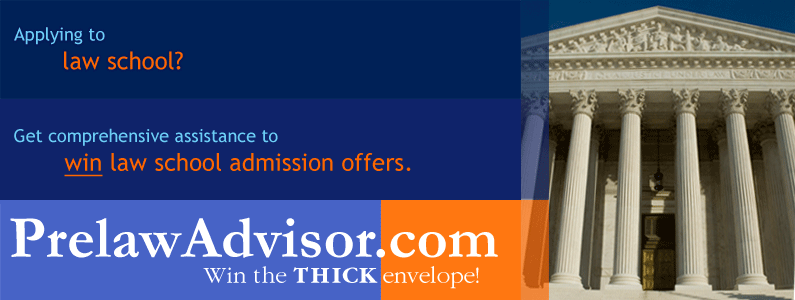What Should the Law School Applicant Read...Before Law School Starts?
 Thursday, November 20, 2008 at 11:21AM
Thursday, November 20, 2008 at 11:21AM
A talented advisee who was a top student in college (he earned a 4.0 GPA) and is now in law school, shares this advice with those who are shortly contemplating their first year in law school. He recommends the following:
In the summer before law school ( and it is best to start much earlier), read the following. In every case, seek the most current version available.
One L: The Turbulent True Story of a First Year at Harvard Law School, by Scott Turow. This classic account of the first year of law school gives the reader a grasp of the challenges of law school, and offers advice about what to do and not to do during the critically-important first year.
Learning Legal Reasoning: Briefing, Analysis and Theory, by John Delaney. This book is essential as a guide to help you learn how to construct excellent, “to the point” briefs for your future law school classes.
How to Do Your Best on Law School Exams: Complete with Exam Problems& Answers, by John Delaney. This excellent resource is on par with the LEEWS system (www.leews.com), but less expensive.
Civil Procedure: Examples & Explanations (Aspen Publishers)
Constitutional Law-Individual Rights: Examples & Explanations (Aspen Publishers)
Constitutional Law-National Power and Federalism: Examples & Explanations (Aspen Publishers)
Contracts: Examples & Explanations (Aspen Publishers)
Criminal Law: Examples & Explanations (Aspen Publishers)
Property: Examples & Explanations (Aspen Publishers)
The Law of Torts: Examples & Explanations (Aspen Publishers)
In your “E & E” reading, focus on the courses and subject areas that will be covered in your fall 1L classes. Your E & E books can serve as a hornbook for each of your 1L classes.
Purchase and use these during your first year:
Law in a Flash (a flash card learning system for each of your 1L courses). These are highly recommended if you want to start learning the black letter law early. Check eBay for used versions of entire sets. Law in a Flash is very helpful to clarify subjects in class that may not be clearly presented. Use these cards as study aids for any quizzes you might have, because they contain hypotheticals with the tricks you are likely to see from your law professors. Study the hypotheticals with the study group you form and lead. These cards will also be useful as a refresher before your future bar exam, after law school is over.
Other key reading:
Planet Law School II: What You Need to Know (Before You Go)...But Didn’t Know to Ask...and No One Else Will Tell You, by “Atticus Falcon,” Esq. This very interesting book contains the critically important explanation of the “law school paradox” and it explains how law schools stress knowing black letter law. This book is time consuming, but very valuable.
For more information about how I can help you in your law school planning, please contact me.
